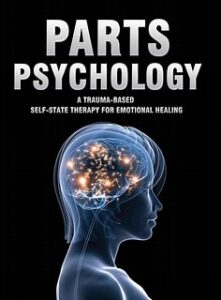WHAT IS RELAXATION INDUCED ANXIETY?
What is relaxation-induced anxiety and what can you do about it?
Relaxation-induced anxiety like the term seems so counter-intuitive. You’re supposed to be relaxing why is that causing anxiety? Why indeed. This is a thing particularly with PTSD or people who have had trauma. Different modalities of therapy see this phenomenon.
Essentially there’s an inner conflict happening.
Part of you wants to be relaxed but another part of you cannot, essentially that’s why you’re going into therapy or that’s why you’re doing a meditation. This could be for a number of reasons, for example it could be that part of you may feel vulnerable like you’re letting your guard down which can be difficult, and that can feel scary. Interestingly this does not make you vulnerable but oftentimes we’re waiting for the other shoe to drop.

We’re waiting for something bad to happen therefore we have our guard up, but if we look at what happens when our guard is up it can help put things into perspective. For example, if you get into a car accident and you have your guard up you tense up and you’re going to break more bones. Your bones are pushed past their limit because you flexed your muscles because you put your guard up. You want to be loose; it actually protects you more by not having your guard up. If you’re loose and you get into a car accident you have a better chance to be ok, emotionally it’s the same thing.
What’s interesting is we don’t think that way but emotionally it is the same situation. If you’re a 5 out of 10 emotionally with 10 being your limit, something that’s stressful that is a 5 comes and stacks on top of what you already are experiencing you are at your limit. But, if you’re not at a five if you’re at a two and something comes at a 5 and stacks on top, you’re at a seven you can handle it you’re not overwhelmed.

Having your guard up, having your stress up makes it so that you can’t handle as much, you get overwhelmed quicker. Cognitively we may recognize now that it’s a good idea to drop one’s guard, it’s a good idea to become relaxed, but often that’s not the part of you that needs reassurance. It may not be your frontal lobe or may not be okay for you to say, “I’m totally okay and I can do meditation and not have a physical reaction.”
That would be great if it was that easy, but there is this sub part of you that doesn’t want to relax. So, what do you do about that?
Therapy!
Whether it’s trauma work, whether it’s parts perspective inner dialogue, parts and memory therapy, or the more traditional exposure therapy. Simply doing that relaxation activity every single day like you meditate every single day and you panic every single day, after a while it might wear off and you might become accustomed to it.
There are things that you can do to help. Parts and memory therapy is a great option. This technique seems to work well for this issue, where there is this inner conflict. It can be scary to let your guard down. There is some sort of inner conflict, finding out what that is and reassuring yourself, having some sort of resolve is going to make it easier, and therapy is a great way to do that.

So, if this happens to you, you’re not alone, this has been studied, this has been around for years. It’s hard it is really hard, but there’s help out there, therapy can really help!
If you want to watch this video visit What is Relaxation Induced Anxiety? | How to Cope with Anxiety | Mental Health Matters – YouTube


